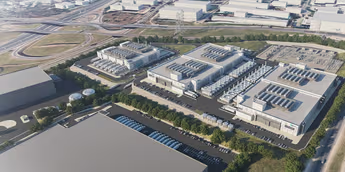4,000 CNG Trucks: Panic Grips Tanker Drivers as Dangote, Marketers Seal New Fuel Distribution Deal

By Erewunmi Peace
A major disruption is looming in Nigeria’s fuel distribution network as Dangote Refinery, in partnership with licensed oil marketers, prepares to deploy 4,000 Compressed Natural Gas (CNG)-powered trucks nationwide. The move, set to begin on August 15, 2025, has sparked widespread concern among independent petroleum tanker drivers, many of whom fear job losses and economic displacement.
The CNG fleet, reportedly worth over ₦720 billion, is part of Dangote’s strategic initiative to reduce logistics costs, enhance fuel distribution efficiency, and support Nigeria’s transition to cleaner energy.
While industry analysts hail the development as a step forward for environmental sustainability and supply chain modernization, the reaction from tanker drivers has been tense. Members of associations such as the Petroleum Tanker Drivers (PTD) and Nigerian Association of Road Transport Owners (NARTO) are reportedly organizing emergency meetings to assess the potential impact on their operations.
“This feels like a Greek gift,” said a spokesperson from the Petroleum Products Retail Outlets Owners Association of Nigeria (PETROAN). “It could wipe out the independent tanker economy in a matter of months.”
Initially partnering with three marketers, the Dangote Refinery has now expanded its direct distribution network to include 25 major downstream players, according to official sources. These marketers will receive products directly from the Lekki-based refinery, bypassing third-party logistics systems traditionally dominated by private tanker owners.
Why It Matters:
Job Threat: Thousands of tanker drivers and small fleet operators fear redundancy if the model becomes dominant.
Cleaner Transport: The new fleet operates on CNG, aligning with Nigeria’s energy transition goals.
Economic Realignment: The development may redefine who controls downstream distribution and logistics.
Industry insiders argue that while the change is necessary, it must be inclusive. Unions are calling on the Nigerian Midstream and Downstream Petroleum Regulatory Authority (NMDPRA) to ensure fair competition and prevent market monopolization.
What to Expect:
Full fleet rollout by August 15
Rising negotiations and protests from logistics unions
Ongoing debate on the sustainability and fairness of the new model
As Nigeria’s oil and gas industry evolves, the question remains: Will innovation leave workers behind, or will there be room for adaptation and inclusion?



















































































































































































































































































































































































































































































































































































































































































































































































































































































































































































































































































































































































































































































































































